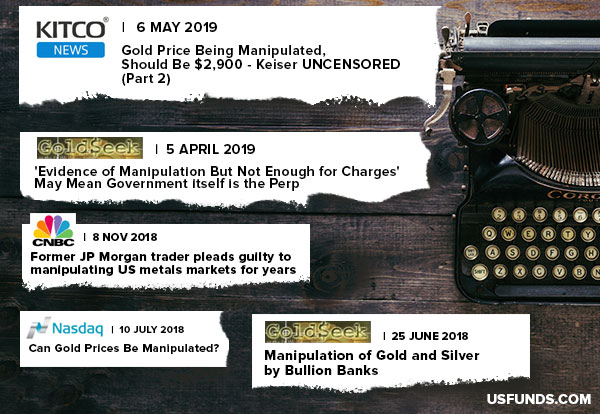by Franklin Templeton Investments blog, Franklin Templeton Investments
As expected, trade-war rhetoric dominated headlines and drove markets last week. This saw markets start the week lower, but most European indices still managed to make gains on the week after a boost on Tuesday from an apparent US about-turn on auto tariffs. Equity markets in the United States and Asia Pacific regions underperformed.
The Digest
Trade Tensions Continue to Make Waves
 Trade tensions were the real market driver throughout last week. A US equity drop on Monday set the tone for the rest of the week as neither the United States nor China appeared willing to back down on tariffs.
Trade tensions were the real market driver throughout last week. A US equity drop on Monday set the tone for the rest of the week as neither the United States nor China appeared willing to back down on tariffs.
On Monday last week, China announced it would be raising tariffs to 25% on US$60 billion of US imports in response to the US escalation of tariffs on Chinese goods. China’s tariffs are set to take effect on June 1.
However, there was some respite for equities on Tuesday after the media reported that US President Donald Trump may delay his auto tariff decision by six months.
Tensions intensified through the week, culminating with the Chinese authorities essentially indicating on Friday that their patience was wearing thin.
Chinese officials commented that they saw little “sincerity” in Trump’s recent approach after a high-profile US crackdown on Chinese technology company Huawei. On Thursday, the US Commerce Department had formally placed Huawei Technologies and 68 affiliates in more than two dozen countries on its so-called “Entity List,” a move that bans the telecom company from buying parts and components from American firms without US government approval.
Technology stocks felt the heat in early trading on Monday of this week, with the sector leading Europe lower.
No Respite for Emerging-Market Currencies
Emerging-market currencies continued to feel the feeling the pain from the US/Chinese tensions last week. The yuan was impacted in particular.
Markets had seemed to have priced a deal between the United States and China the previous week. That optimism proved premature, but there was also a sense that the Chinese authorities had stimulus in their pocket should a deal not happen.
However, on Friday, for the first time, Chinese equities completely ignored a Chinese government reminder that it stood ready to act. Shanghai-listed stocks failed to stage any recovery after the attempted reassurance and closed the day down 2.5%. It wasn’t only equities that ignored the promise of a helping hand from China either: the country’s central bank, People’s Bank of China (PBOC), announced on Friday that it stood ready to defend the yuan, but the currency hardly flinched.
On Wednesday of last week, stimulus hopes had underpinned a rally in Chinese equities after some poor economic data (April retail sales were their lowest in 16 years). The lack of market response after Friday’s attempt at reassurance implies to us a serious deterioration in sentiment. Clearly, this theme will likely continue to drive markets this week.
Brexit and European Parliamentary Elections
 Away from trade, concerns over an elusive Brexit deal and polling worries ramped up ahead of European Parliamentary elections this Thursday.
Away from trade, concerns over an elusive Brexit deal and polling worries ramped up ahead of European Parliamentary elections this Thursday.
The latest on Brexit
Cross-party UK parliamentary talks on a Brexit deal continued for much of last week but ended on Friday with no resolution.
A deadlock in the UK Parliament looks set to drag things out further, with any deal unlikely to make it through. Prime Minister Theresa May’s Withdrawal Agreement Implementation Bill (WAIB) will be brought to the House with a vote for the further time: likely on the week of the June 3. Should this be defeated, May has finally confirmed that she will give a date for her exit as leader.
A UK General Election on the Cards?
While the risk of a no-deal Brexit has fallen, the likelihood of a snap general election has increased.
A general election piles domestic policy risks on top of those associated directly with Brexit. In particular, a Labour government is seen as a market negative given the party’s left-leaning policies and the potential for the nationalisation of public services.
In addition, the possibility of a coalition between Labour and the Scottish National Party (SNP) raises doubts of the integrity of the United Kingdom, with the potential for another Scottish independence referendum.
Over the weekend, it was reported that the Scottish National Party plans to unveil a timeline for a second independence referendum bill immediately following this week’s European elections.
With this backdrop of concerns, sterling suffered its worst week in a year last week and completed a record 10-day decline versus the euro. In turn, the UK exporters dramatically outperformed the more domestically exposed names.
We can expect a wealth of European political headlines into and following Thursday’s European elections, and see sterling the key asset to watch as a barometer for sentiment.
Last Week
Europe
European markets started last week lower, but showed resilience later in the week despite continued trade headlines and concerns over the upcoming European elections. Oil and gas names led the way higher, with strength in underlying commodity prices lending a boost.
Meanwhile, European banks suffered, with noise from Italy weighing on sentiment. Italian equities in general underperformed broader markets.
Italy’s Deputy Prime Minister Matteo Salvini escalated his government’s conflict with the European Commission (EC) over Italy’s budget deficit throughout last week. He made it clear that he was willing to break the EC’s fiscal rules by allowing the Italian deficit to run above 3% of gross domestic product (GDP) in 2020. Coming into the elections, it will be interesting to watch the headlines this week.
European auto stocks saw a boost on Tuesday from speculation on the delay of US tariffs, but nonetheless ended the week lower.
Americas
Last week proved volatile for US equities as the newsflow around trade tensions primarily drove investor sentiment. Monday saw a sharp move lower as President Trump took a tough line with China.
Defensive utilities stocks outperformed, whereas financials were the laggards.
Other geopolitical factors also played their part in the volatility, as rising tensions in the Middle East saw the price of crude oil rise on the week. The Trump administration’s continued confrontation with Iran was the main focus; the United States withdrew non-essential staff from Iraq.
US macro data didn’t offer enough clarity to drive sentiment, as the data points were mixed. Retail sales and manufacturing production both missed expectations. On the flip side, the May Philadelphia/Empire indices, Michigan confidence survey, and National Association of Home Builders (NAHB) housing report were better than expected.
Asia
Trade tensions drove markets in the Asia Pacific region last week too, and Asian equities continued to face selling pressure.
The trade-weighted yen strengthened as risk-off sentiment dominated. Losses in Japanese equities were more muted, while mainland China and Hong Kong markets both underperformed.
Australian equities proved to be a bright spot ahead of elections in the country, with underlying commodity strength helping drive gains last week.
There were elections in both Australia and India over the weekend, with both results looking market-friendly.
The Australian dollar rallied in early trading on Monday after the ruling centre-right Liberal Party won what has been dubbed a “miracle” win. The Liberal-National coalition remained in power, despite the opposition Labor party leading opinion polls in the past couple of years.
In India, exit polls are pointing to a win for the ruling Bharatiya Janata Party-led coalition. The final result will not be known until later this week but on Monday (May 20, 2019), Indian equities recorded their strongest rally in more than three years. The rupee also strengthened versus the US dollar after a period of underperformance amid rising oil prices.
Week Ahead
Macro Data
- Tuesday: Eurozone Consumer Confidence; US Existing Home Sales.
- Wednesday: Japanese Machine Orders, UK consumer price index (CPI), US Fed Minutes.
- Thursday: Eurozone, Germany, France, Japan and the United States all release May Manufacturing and Services purchasing manager index (PMI) data.
- Friday: US Durable Goods and UK Retail Sales. Japanese CPI.
Politics
Geopolitics will remain centre stage this week with trade talks, tension in the Middle East and European elections in the mix.
- The narrative around US/China trade talks will no doubt continue drive markets. No talks are scheduled for this week.
- European Parliamentary elections will be closely watched on Thursday. Equity market reaction on Friday will be a focus.
- Tensions between the United States and Iran show no sign of cooling down, so commodities and energy names will likely be barometers for sentiment.
Central banks
- The most notable fiscal data point this week is likely to be the release of the US Fed’s meeting minutes on Wednesday afternoon.
- Fed speakers: There are due to be multiple speakers through the week, including chairman Jerome Powell, Patrick Harker and Charles Evans.
- ECB President Mario Draghi and Chief Economist Peter Praet are talking on Wed.
- ECB Minutes of April Monetary Policy Meeting.
Views You Can Use
Insight from Our Investment Professionals
Analysing Market Volatility from Escalating Trade Tensions
As one might imagine in light of recent news, trade was a big topic of discussion at Franklin Templeton’s 2019 Global Investor Forum in San Francisco this week. Our panelists addressed how the uncertainty is impacting the markets today—particularly emerging markets. Read More.
European Elections: Big Changes, or Business as Usual?
Many observers are predicting that European elections later this month will usher a wave of populist representatives into the European Parliament. David Zahn, Head of European Fixed Income, Franklin Templeton Fixed Income Group, believes there may be a shift in political balance, but suggests the ability of extremists at either end of the political spectrum to dramatically alter the direction of the European Union is likely to be limited. Read More.
Fundamentals Drive Emerging Market Performances in April
Franklin Templeton’s Emerging Markets Equity team walks through events moving emerging markets in April and discusses the three things the team is thinking about today. The team believes the current market environment provides an attractive entry point for investors, particularly in the small-cap stock space. Read More.
Searching for Value When Growth Is King
It’s been a tough road for value investors during the past decade or so, even leading some pundits to declare the investing style is dead. The value-oriented Templeton Global Equity Group is digging in deep—and searching for deep values. While a growth-driven US market rally in the first quarter of this year presented a challenge, the team has uncovered some unloved stocks and sectors—particularly in Japan and Europe—where valuations appear reasonable and prospects good. Tony Docal, Dylan Ball and Joanne Wong take us on an around-the-world tour of where they are finding opportunities today. Read More.
For timely investing tidbits, follow us on Twitter @FTI_Global and on LinkedIn.
Important Legal Information
This article reflects the analysis and opinions of Franklin Templeton’s European Trading Desk as of May 20, 2019, and may vary from the analysis and opinions of other investment teams, platforms, portfolio managers or strategies at Franklin Templeton Investments. Because market and economic conditions are often subject to rapid change, the analysis and opinions provided may change without notice. An assessment of a particular country, market, region, security, investment or strategy is not intended as an investment recommendation, nor does it constitute investment advice. Statements of fact are from sources considered reliable, but no representation or warranty is made as to their completeness or accuracy. This article does not provide a complete analysis of every material fact regarding any country, region, market, industry or security.
Nothing in this document may be relied upon as investment advice or an investment recommendation.
Data from third-party sources may have been used in the preparation of this material and Franklin Templeton Investments (“FTI”) has not independently verified, validated or audited such data. FTI accepts no liability whatsoever for any loss arising from use of this information and reliance upon the comments, opinions and analyses in the material is at the sole discretion of the user. Products, services and information may not be available in all jurisdictions and are offered by FTI affiliates and/or their distributors as local laws and regulations permit. Please consult your own professional adviser for further information on availability of products and services in your jurisdiction.
What Are the Risks?
All investments involve risk, including possible loss of principal. The value of investments can go down as well as up, and investors may not get back the full amount invested. Stock prices fluctuate, sometimes rapidly and dramatically, due to factors affecting individual companies, particular industries or sectors, or general market conditions. Bond prices generally move in the opposite direction of interest rates. Thus, as prices of bonds in an investment portfolio adjust to a rise in interest rates, the value of the portfolio may decline. Investments in foreign securities involve special risks including currency fluctuations, economic instability and political developments. Investments in developing markets involve heightened risks related to the same factors, in addition to those associated with their relatively small size and lesser liquidity.
Past performance is not an indicator or guarantee of future performance.
Links to External Sites
Franklin Templeton Investments is not responsible for the content of external websites.
The inclusion of a link to an external website should not be understood to be an endorsement of that website or the site’s owners (or their products/services).
Links can take you to third-party sites/media with information and services not reviewed or endorsed by us. We urge you to review the privacy, security, terms of use, and other policies of each site you visit as we have no control over, and assume no responsibility or liability for them.
______________________________
Copyright © Franklin Templeton Investments














